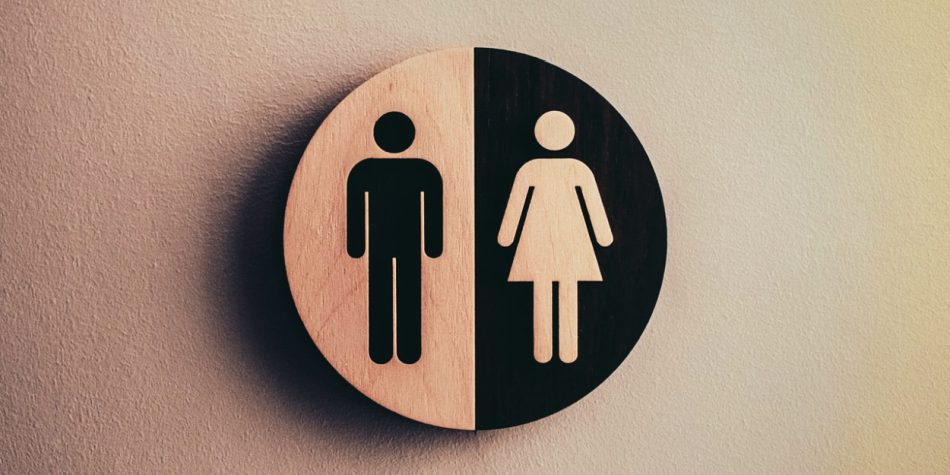The Church of Jesus Christ of Latter-day Saints recently reiterated their opposition to the Equality Act, a bill now before the Senate seeking to make sexual orientation and gender identity (SOGI) protected classes under federal civil rights legislation. The Equality Act specifically calls for banning religious exemptions. While the Church has championed anti-discrimination laws for LGBTQ persons, they have also consistently sought legal protections for religious organizations. They cite what should be a fairly obvious and non-controversial belief: that churches and religious institutions must be allowed to pursue their own vision for human well-being, even when that vision falls on the wrong side of popular opinion.
However, I believe it’s worth looking beyond questions of religious freedom for a moment. Instead, I’d like to explore what kinds of claims such legislation makes about the nature of biological sex and what it would mean to enshrine those claims in federal law. What are the assumptions being made—and values being advanced—by recognizing gender identity as a protected class? What, if anything, are we giving up as a consequence?
I realize that merely raising these questions draws a certain amount of suspicion. For many, any discussion of rights or discrimination immediately leads people to assume I’m making judgments about the existence or worthiness of individuals to have certain rights or to be protected from unfair discrimination. Neither is true. I believe every person, regardless of what they believe or how they identify, is of immeasurable worth and that our laws ought to reflect that belief. Policies around gender identity affect individuals who have already suffered from social and cultural stigma. Their struggles are real and worth addressing. If the only outcome of these policies were ending this stigma and affirming the worth of transgender individuals, we ought to support them wholeheartedly. It’s my belief that there is more at stake, however, and that’s what motivates the following thoughts.
Those characterizing the Equality Act merely as anti-discrimination legislation seem to take for granted that all discrimination is inherently unjust. Yet to discriminate means to recognize and respond to differences—something we each do routinely across many aspects of life. Whether that discrimination is just depends on the reasons for it.
For instance, we typically segregate children’s sports by age because we recognize that older children have physical advantages over younger ones. The differences between older and younger children are not the deeper reason for the discrimination; they are the distinction according to which we discriminate. The true reason for the discrimination is that we prioritize the achievements gained by skill and effort above those that come about biologically. Sports competitions are meant to test an athlete’s skill against others of similar ability. While physical advantage varies among children of the same age, the age-related advantages of older children can make the skill and ability of younger children almost irrelevant. Accordingly, we group the competitors in such a way as to minimize the age-related advantages and privilege the agentic ones. Our commitment to this value makes age-based discrimination not only defensible but necessary to the nurture and development of young athletes. Making gender identity a protected class would allow biologically male athletes to compete against biologically female ones.
This means it’s not enough merely to recognize that discrimination is occurring. We need to ask ourselves what purposes are being served by the discrimination in question and whether they’re being served well. Much of the discrimination at issue in the Equality Act is based on long-held beliefs that the differences between the sexes are real and meaningful. Male athletes, for example, do not compete against female athletes for the reasons discussed above. We also segregate restrooms and locker rooms by sex because we recognize that privacy and safety are compromised by the inherent physical differences and sexual attractions between men and women. That there may be exceptions to these differences and attractions doesn’t tell us it’s unjust to organize society according to the norm, unless we believe that doing so compromises something we value more.
What do proponents of the Equality Act value more? The changes to Title IX of the Civil Rights Act are revealing. Making gender identity a protected class would allow biologically male athletes to compete against biologically female ones. Whatever your feelings about the fairness of such a policy, it clearly requires prioritizing the subjective experience of gender (“gender identity”) above the recognition that there are objective physical differences between men’s and women’s bodies. The existence of women-only sports programs reflects society’s recognition of those differences. There’s nothing inherent to the broad classification of gender identity that requires a man to alter his biology. In the absence of such alterations, the physical advantages of males are indisputable.
Viewed in this light, the Equality Act raises a question that’s not fundamentally about discrimination or equality. At the heart of the Equality Act is the question of whether society should prioritize an individual’s subjective claims about themselves above the objective biological reality of their bodies. That activists recognize this tension is revealed by the way some in the scientific community have recently begun characterizing sex as existing along a spectrum. The argument is that, if biological sex is not truly binary, there may be physiological (rather than psychological) reasons why someone would feel their gender is at odds with their body. Such characterizations give a veneer of scientific support to subjective claims about one’s identity but lead to a paradox. What can it mean to claim that one is a man or a woman if, scientifically speaking, such distinctions are social constructions rather than biological realities? To claim one is a man or a woman presupposes that there is such a thing as a man or a woman—categories which disappear under the new scientific assault on sexual complementarity.
Prioritizing subjective experience over objective realities does not come without cost. We need to be honest about what those costs are and who will bear them. Many have already pointed to some of the immediate costs of privileging subjective identity above biological sex. There are already instances of opportunistic predators availing themselves of transgender protections since there are no rules about who can claim a transgender identity. There is also significant controversy about the wisdom of allowing (and even encouraging) children to make irreversible medical decisions on the basis of gender identity. Gender identity is not always (or even usually) immutable among children, who lack the experience and judgment to make permanent decisions about what may be an impermanent way of understanding themselves.
There is, however, more at stake. One cannot accept the claim that someone’s gender is at odds with their body without believing that their physical body serves no purpose other than to express their self-selected identity. Are we so confident that the unchosen aspects of our existence are meaningless? That our bodies express nothing objective about our nature and that human happiness is attainable without reference to the bodies in which we enter this world?
In his book When Harry Became Sally, Ryan T. Anderson writes:
A basic principle of sound ethical reflection is that there is natural goodness for natural kinds, not merely conventional or willfully created goodness … we do not arbitrarily choose what is good for our houseplants or our pets, but acknowledge that there is a natural goodness for their kind.
The same is true of people because “human persons are naturally directed toward certain ends, in order to fulfill the type of creature they are.” This means that while we can make different decisions about how to obtain the things we need, we cannot ultimately change what we need. For example, we all readily acknowledge that among the myriad foods we can eat, only some of them will actually nourish our bodies. No matter how much my children want me to acknowledge that fruit snacks and Coke are good for them, my saying so won’t actually make it true and would be unethical. It would encourage attitudes about food that are difficult to unlearn and that would wreak havoc on their bodies and appetites. Even for transgender individuals who surgically transition, only the secondary sex characteristics are manipulated.
In the same way, I believe it’s misguided to enact laws that take for granted that the evident purposes of one’s sex-specific embodiment are optional for their personal fulfillment. By privileging gender identity above physical sex, we advance the idea that a body that is organized from conception—even at the cellular level—toward a distinct way of participating in the act of human creation is incidental and distinctly secondary to one’s true identity. Even for transgender individuals who surgically transition, only the secondary sex characteristics are manipulated. A trans woman cannot produce eggs and a trans man cannot produce sperm. If either of these individuals wishes to have children, they can only do so as a biological male or female, requiring them to accept the sexual expression of the bodies into which they were born. To treat gender identity as existing independently of biological sex is to assert that accepting these deeper, inescapable realities—and the bodies which make them possible—are optional.
If we give gender identity precedence over biological sex, we teach the coming generations that calling someone a man or a woman makes no objective claim about that person. The idea that “male” and “female” are identities that can be assumed at will suggests that the natural world—of which we are inescapably a part—expects nothing from us. To deny the duality of the sexes—a truth not rooted in chromosomes, but in the ability to bring forth new life—is an experiment in which we tell children that one’s subjective experience of the world is what counts most. Nature will not uphold this view.
It’s unfair to pretend laws like the Equality Act won’t drastically alter the way people conceive of themselves. The children currently struggling with gender identity, along with the countless children who will inherit the future our laws create, deserve our conscious attention to that fact. We can—and should—recognize that people experience the world differently and that, for some people, that means a real and painful incongruence between their physical sex and their perceived gender. But I believe we can create more narrowly tailored laws that uphold their dignity as our fellow brothers and sisters. We need not unequivocally accept that the most compassionate path is to confirm someone’s views of the world.
We should not be apologetic about wishing to bequeath to our children a world in which it’s possible to understand their biological sex meaningfully. Our bodies matter. And our laws can and should reflect that.















